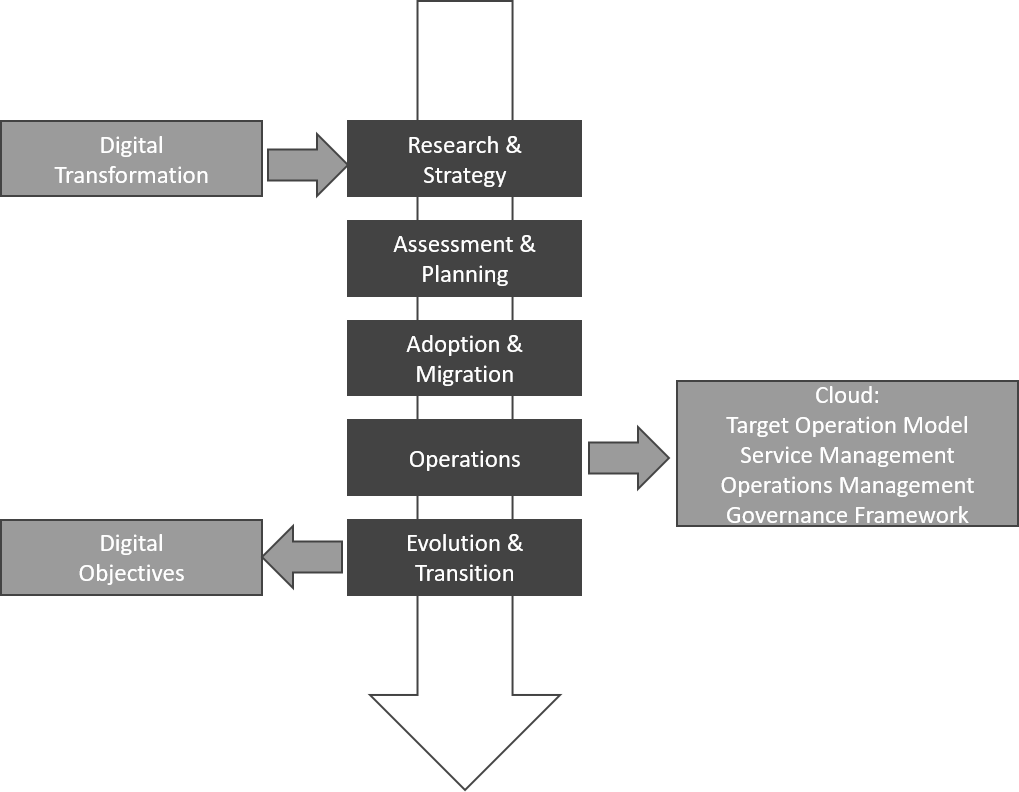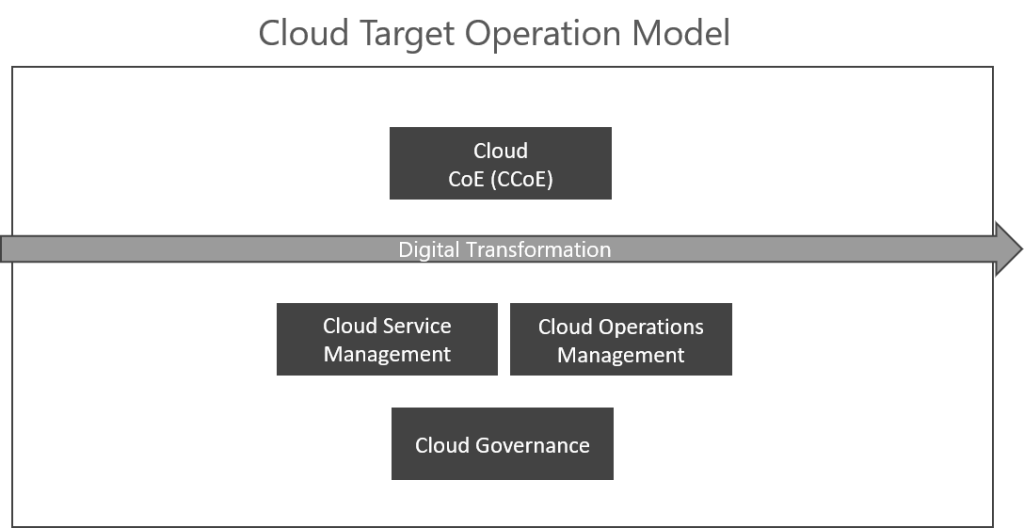
We often see companies moving to the cloud for the sake of not losing to the competition reversing the question “technology searches problem to solve” in stead of “business problem searches technology to be supported”.

Cloud computing can be an answer to a business question and has a lot of advantageable properties if it is aligned with a digital transformation vision. Hence Business-ICT alignment is key to make this happen. So the logical steps would be:
- Come with a Digital Strategy first.
- Translate the strategy into an Target Operating Model (TOM) for your business.
- Deduce a Cloud Strategy from the Digital Strategy
- Translate the Cloud Strategy into a Cloud Target Operating Model (CTOM)
Doing some literature research and looking into the publications of Enamul Haque, I created an overview slide deck with a focus on Business-ICT alignment for cloud computing.
You can download the deck here:
The content first focusses on where cloud computing fits within a digital transformation. Digital transformation is driven by a customer focus and on allowing continuous business changes. Next the following questions are answered: 1. What technologies and prediction are fitting with these drivers? 2. What are key success factors and challenges of a digital transformation? Finally the reasons behind a digital strategy are discussed.

In a second part the focus is on cloud computing. We start with the business drivers and technology drivers and next discus some benefits and challenges. In order to fit cloud as a technology within any company it must be supported by a cloud adoption framework in order to live up to its full protentional.

The final part of the slide deck focuses on the CTOM where the adoption is initiated by a Cloud Center of Expertise (CCoE) delivering the processes for Cloud Service Management and Cloud Operations Management regulated through Cloud Governance.
Cloud Target Operating Model is based on four processes:

- Plan: Strategy to Portfolio (S2P)
- Build: Requirement to Deploy (R2S)
- Fulfil: Request to Fulfil (release/delivery) (R2F)
- Run: Detect to Correct (R2D)
